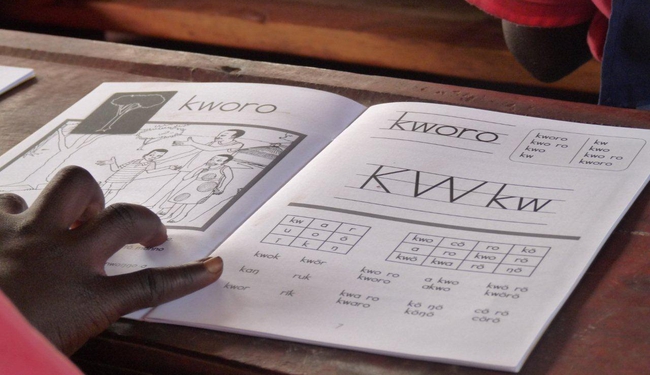Learning in the Sustainable Development Goals
The new Sustainable Development Goals (SDGs) emphasize that global efforts in education must give central importance to quality and learning.
This site belongs to UNESCO's International Institute for Educational Planning


School in Uganda
The IIEP learning portal is designed for anyone wanting to find solutions for improving learning: educational planners, policy-makers, civil society, organizations, funders, and concerned citizens.
“Worldwide, 250 million children – many of them from disadvantaged backgrounds – are not learning even basic literacy and numeracy skills, let alone the further skills they need to get decent work and lead fulfilling lives.” (EFA Global Monitoring Report 2013/14, p. 18)
The new global Sustainable Development Goals (SDGs) give high importance to the quality of education, calling on every country to “ensure inclusive and equitable quality education and promote lifelong learning opportunities for all.” There is good reason for this focus on learning and quality.
Since the adoption of the Education for All framework in 2000, remarkable progress has been made in many countries towards expanding access, increasing enrolments and improving pupil retention in schools. But recent studies of learning outcomes indicate that levels of learning among primary school children remain very low. The 2013-2014 GMR reports that around 250 million children are not learning basic skills, despite half of them spending at least four years in school. At the secondary level, the limited data on student learning continues to be a concern. Low levels of learning are contributing to the gap between developing and developed countries.
There is now a global consensus as to the significance of learning as a policy goal, as evident in the new SDG targets for education and in the associated Framework for Action. It is not enough simply to enrol more students and retain a larger number in schools. It is also essential that these students receive a quality education. Efforts to improve learning, however, require in-depth discussions of what counts as learning, and how education planners around the world can promote it.
The goal of the IIEP Learning Portal is to promote that discussion.
A broader concept than primary schooling, comprising early child education, adult literacy programmes, and a range of nonformal activities for children, young people and adults.
Access to education refers to whether or not a child can physically attend school. Access indicators measure the amount of children of a given school age who have access to a given educational level or cycle
The new Sustainable Development Goals (SDGs) emphasize that global efforts in education must give central importance to quality and learning.
What do children need to learn in school? What are the knowledge, skills, attitudes, and values that will equip them for gainful employment and active citizenship?
The IIEP Learning Portal is a single window to comprehensive, up-to-date, relevant, and neutral information on learning issues, from primary through secondary (...)
Contribute and discover how to help solve the learning challenge.